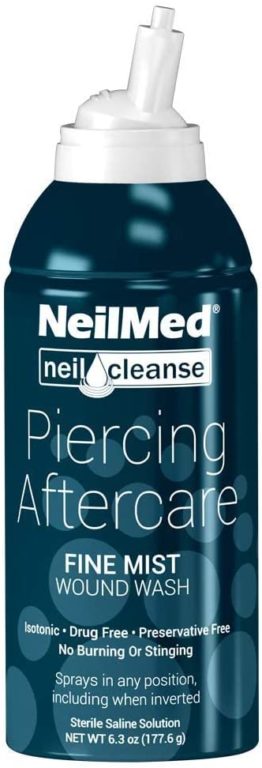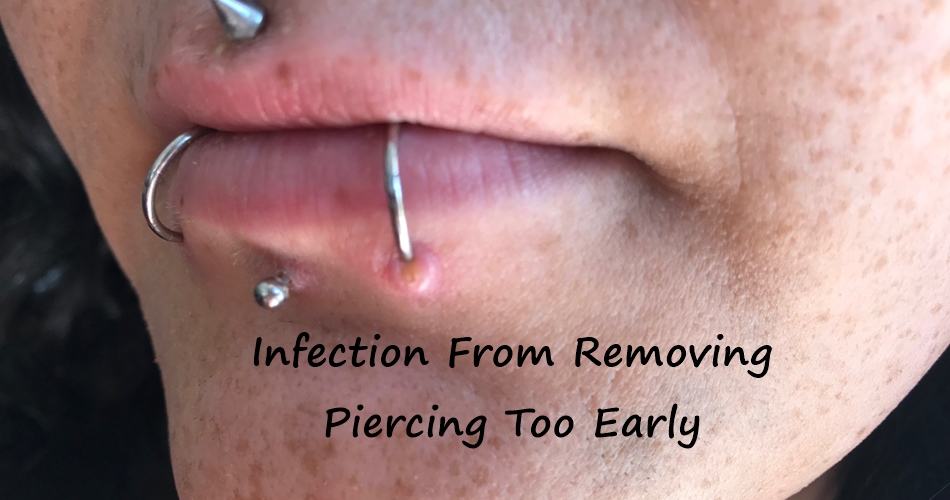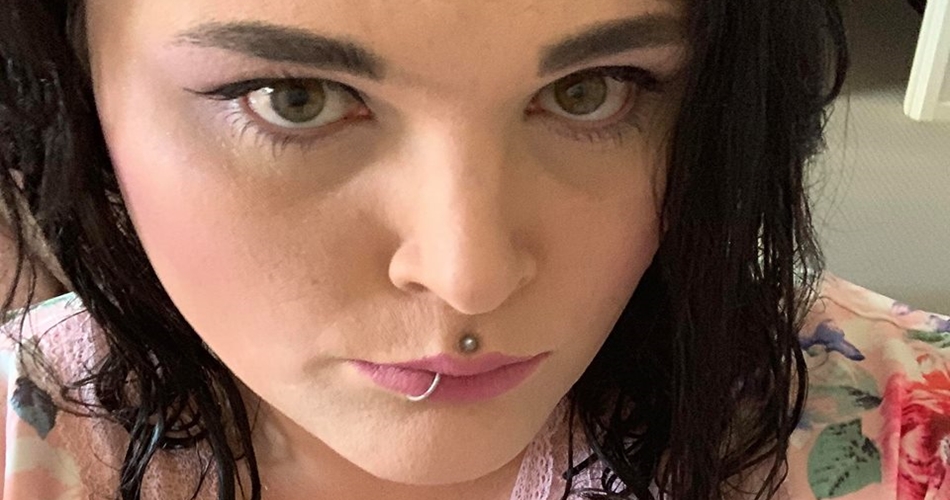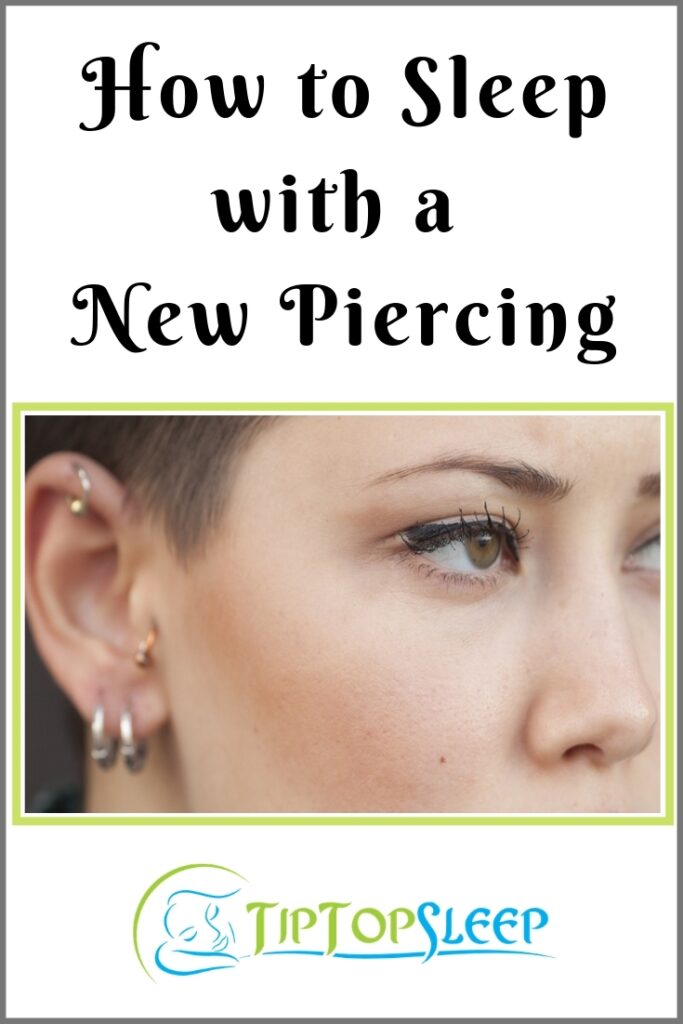It is always exciting when we get a new piercing. In all the planning and excitement we sometimes forget about the pain which may occur when we are trying to get some sleep.
The short answer on how to sleep with a new piercing comfortably and painlessly is to avoid sleeping on the piercing. Keep the piercing clean and free from infection, keep your bedding clean and do not try to sleep on the new piercing before it is completely healed. Even if it does not hurt you to do so.
The most common piercings are earlobe piercings on both sides therein lies the difficulty sleeping if you are not a back sleeper. The following tips will take assist you in remaining pain-free while your piercing heals.
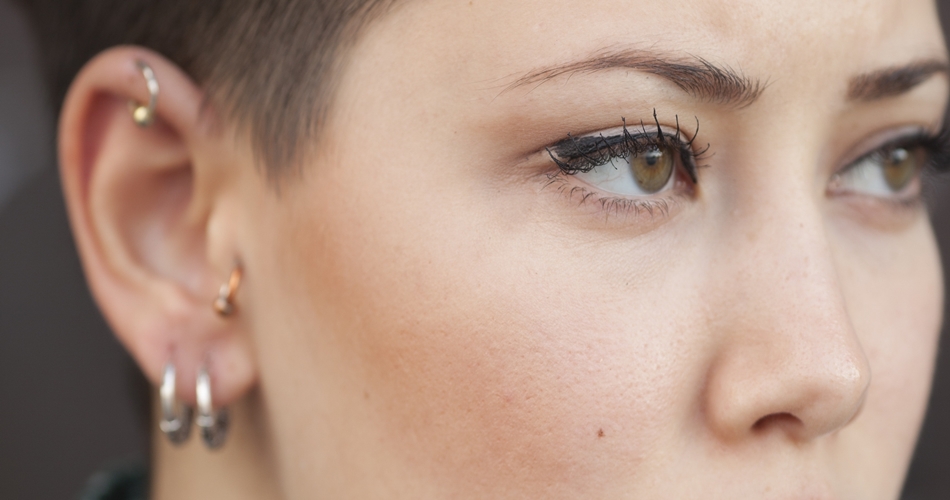
Why You Should Not Sleep on a New Piercing
- Piercings will take longer to heal.
- If you are a restless sleeper they will be pulled this way and that during the night.
- Causing the jewelry to move around pushing and pulling at the incision. That may cause the piercing holes to stretch out of shape and not hug the jewelry.
- This, in turn, could make the piercing heal at weird angles and will not look as good as if it had been able to heal untouched.
- It could also leave scaring so you are not able to remove and insert jewelry easily.
- You also want to avoid any infections, aggravation or pain that could occur from sleeping on the new piercing.
- Do not sleep on the piercing until it is completely healed, even if does not hurt. It will retain it’s shape longer.
Read on for in-depth easy to follow simple tips to help you get the most sleep you can without enduring pain from your new piercing or piercings.
How to Sleep with a New Piercing
1. Always clean your piercing before you go to bed. Cleaning your new piercing every night before bed and repeat in the morning as it assists in stopping any infection taking hold. Remember to tighten your piercing before bed so it does not come out and start to heal over during the night.
One of the other main benefits of cleaning your piercing regularly is the lubrication it provides. It helps by allowing the jewelry to move freely in the incision or hole.
More importantly, it helps by stopping the skin and surrounds it from drying out and becoming extremely painful.
I know that cleaning can sting and be a little painful. But take it from me you do not want your piercing to dry out or become infected “that is painful”.
Need more information about body piercing cleaners? Check out this best selling list at Amazon here…
Or you can just grab this one Amazon bestseller with over 20000 positive reviews.
If the piercing does become irritated or sore a numbing agent like Neosporin will give you relief in the area of the piercing. It works in much the same way as the numbing agents we rub on babies gums when they are teething.
It will numb the area while helping to heal as you sleep.
Infection from Removing Piercing Too Early
Isla, my daughter, (pictured) used these products from Amazon to clean up this infection after removing the studs too early and putting the rings in their place… This infection is the first one she has experienced – so you can never be too careful…
2. Do not sleep on the piercing. This is sometimes easier said than done depending upon where your new piercing is located on your body.
3. Stop your hair from getting caught up in the piercing by tying it back out of the way.
4. Practice sleeping in your required position for a week or so before you get your new piercing. Especially if you have to change from stomach sleeping to sleeping on your back. It can take some time to train yourself to stay on your back.
Top Tip
How You Should Sleep with New Ear Piercings on Both Sides
One of the best ways to stay on your back throughout the night is to put a pillow under your slightly elevated knees. Also if you have the room in your bed a pillow or rolled-up clothes either side of the top of your arms. Having this in place stops you from moving around.
5. Use a pillow protector under your pillow sham and change your sham every couple of days. Alternatively, you can place a towel or cloth over your pillow while sleeping.
6. You can also try a u-shaped travel pillow – you can angle it around your neck to suit yourself. There are some excellent choices here at Amazon.
7. Change your bedding regularly to keep it clean, fresh and bacteria-free. The first few nights there will be some oozing from the wounds.
8. If you have had your nipples pierced a soft sports bra can be worn to bed for support if needed. The wounds will weep onto the bra so you might want to have a couple on hand or make sure you wash the one you have every day to avoid infection. You will find one here to suit you.
9. Labrets are less painful to sleep in than barbells (and butterfly clips from earring guns) because they have flatbacks. Make sure they are the correct length so they do not get tangled in anything. Also if they poke out too far they will press into your skin and cause irritation.
10. Some piercings can take months to heal completely. If you need to assume a position such as sleeping on your back that is unnatural to you a comfortable mattress or a lovely padded mattress topper for your existing mattress could be a valuable investment. Especially if you intend to get more piercings in the future.
11. If none of the tips above help you with pain and sleep you can try silicone plugs at night. They take the sharpness of the earrings away and stop your new piercing from closing up while you sleep.
The problem with the silicon plugs is that you need to disrupt your piercing and the immediate area around the piercing at least four times a day.
Extreme care will need to be taken when touching the area so you do not end up with infections.
Infections can be just as painful as persevering with the metal, wood or glass piercing staying intact. In severe cases, you may have to let the piercing close up and redo at a later date.
- REMEMBER – If your piercing does become infected you may need to seek medical assistance as soon as possible.
When Can I Take My Piercing off to Sleep
No, you cannot take your piercing off or out to sleep. When piercings are very new it does not take very long for it heal over if it does not have jewelry in the hole. Sometimes they can heal up overnight. If you do need to remove the piercing make sure you either put the jewelry back in or you could use a silicone filler to keep the hole open.
Check my article, it will tell you about sleeping comfortably with earrings…
When Can I Sleep on a New Piercing?
Everyone is different for some they may be able to sleep on the piercings the same day.
For others, it could take months before they are comfortable enough to sleep as they did before.
When your piercing does not cause you pain when you lay on it is a clear indicator that you can now sleep on it.
Be aware that the next day or throughout the night they may feel a little sensitive.
Especially if you are an active sleeper (moving around a lot during the night).
Top Tip
A quick test is to press your piercing quite firmly into your pillow and if it is not tender or does not hurt, I would sleep on it that night if you are ready.
Keep Your Piercings Looking Good
A piercing can tilt and move when it is slept upon especially when it is new, but it can happen over time as well.
If you want to keep your piercing their best try not to sleep on them at all. You have put the hard work in to stay off them at night for months.
You are now used to your new sleeping position why not carry on sleeping in that way to keep your piercings in tack and looking great.
Piercing Type and What Position You Should Sleep In
Below is a list of the most common piercing and the position you should at night for a comfortable and pain-free night’s sleep. I have also included the average healing time for piercings – remember this time will differ with different people.
- Traditional Ear Piercing – Back – 4 to 6 weeks healing
- Daith Piercing (Inner Cartilage of the ear) – Back – 8 to 16 weeks healing
- Conch Piercing (Ear cartilage) – Back – 8 to 16 weeks healing
- Industrial Piercing (Upper ear cartilage) – Back – 3 to 12 months healing
- Cartilage Piercing (Ear and nose, any cartilage on body) – Back – 3 to 6 months healing
- Tragus Piercing (Cartilage in front of the ear canal) – Back – 8 to 16 weeks healing
- Helix Piercing (Cartilage Upper “Ear) – Back – 2 to 12 months healing
- Orbital Piercing (Ear cartilage and any cartilage on the body) – Back – 3 to 4 months healing
- Sung (Ear) – Back – 8 to 16 weeks healing
- Navel Piercing(also known as belly button piercing) – Back – 3 to 6 months healing
- Nipple Piercing (Nipple) – Back – 6 to 12 months healing
- Pubic Piercing (Pubic area) – Back – 3 to 6 months healing
- Genital Piercing (Genitalia) – Back – 4 to 6 weeks healing
- Uvula Piercing (soft palate between tonsils) – Back – 2 weeks healing
- Labret Piercing (Lip) – Back/Side – 6 to 7 weeks healing
- Tongue Pillar Piercing (Lip) – Back/Side – 8 weeks healing
- Soul Patch Piercing (Lip) – Back/Side – 3 to 6 weeks healing
- Tongue Frenulum Piercing (Tongue) – Back/Side – 2 to 8 weeks healing
- Lip Frenulum Piercing (Inside Lip) – Back/Side – 1 to 2 months healing
- Septum (Nose) – Back/Side – 6 to 8 months healing
- Stretch or Gauge Piercing (Ear, Nose, Lip, and Tongue) – Back/Side – Healing time varies
- Guiche Piercing (Perineum) – You choose most comfortable – 3 to 6 months healing
- Piercing Migration (various parts of the body) – You choose most comfortable – Healing time varies
If you need to sleep on your side depending upon where your new piercing is located on your body and the position you will need to sleep in you can use a pillow wedged between your knees. This will stop you from moving around throughout the night and injuring your new piercing.
See the article about the benefits of sleeping with a pillow between your legs.
Final Word
A little pre-planning before you get your first or next piercing. Either by obtaining a pillow to assist in a pain-free night’s sleep. {See DIY Piercing Pillow Video below!}
Or teach yourself to sleep in a new position for a week or so before the big day will ensure you have plenty of sleep while your new piercing heals.
Enjoy your new piercing!
As always here’s to better sleep!
DIY Piercing Pillow – Video
How to Sleep Comfortably with a New Piercing
Frequently Asked Questions
How Long Until I Can Sleep On My Cartilage Piercing?
Healing time will differ for us all. I would suggest when your piercing feels comfortable in the morning after having slept on it usually a couple of months.
To keep your piercings shape the advice is not to sleep on it at all.
Easiest Ear Piercings to Sleep On?
Unfortunately, when piercings are new there is no easiest one to sleep on. Refer to my article above about sleeping comfortably with earrings. Just know that over time when the piercings heal you will be able to sleep on them.
Healing times and best sleep positions for piercings are outlined above.

